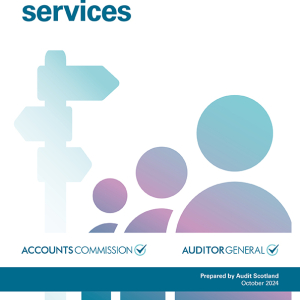Prevention focus needed to tackle alcohol and drug harm

Scotland’s drug and alcohol deaths remain among Europe’s highest – despite an increase in spending and better national leadership.
The Scottish Government has made progress in increasing residential rehabilitation capacity and implementing treatment standards. However, it has been slow to progress key national strategies, such as a workforce plan and alcohol marketing reform. People in need still face many barriers to getting support. The workforce is under immense strain. And the increased focus on drug harm is shifting attention from tackling alcohol issues.
In 2023, there were 1,277 alcohol-specific deaths - the highest since 2008. And there were 1,172 drug misuse deaths, the second lowest number in the last six years. Scotland’s figures remain high compared to the rest of Europe despite alcohol and drug funding rising from £70.5 million in 2014/15 to £161.6 million in 2023/24.
Alcohol and drug services are co-ordinated by Alcohol and Drug Partnerships at a local level. But they have limited powers to influence change and direct funding, and their funding is falling in real terms due to inflation. Most alcohol and drug funding goes to NHS specialist services to treat people at crisis point. This means there is limited money to put into preventing people getting so ill in the first place.
Stephen Boyle, Auditor General for Scotland, said:
The Scottish Government needs to develop more preventative approaches to tackling Scotland’s harmful relationship with alcohol and drugs. That means helping people before they get to a crisis point.
Ministers also need to understand which alcohol and drug services are most cost-effective, and plan how they will be funded when the National Mission ends in 2026. That’s especially important at a time of increasing strain on the public finances.
With many alcohol and drug workers reporting feeling under-valued and at risk of burn-out, there is also an urgent need to put a timeline against plans to address the sector’s staffing challenges.
Christine Lester, a member of the Accounts Commission, said:
Alcohol and drug services are complex and delivered by a wide range of partners. But there needs to be more collective accountability across the system for how each body is helping people whose lives have been blighted by alcohol and drugs.
Better information is needed to inform service planning and where funding should be prioritised. There is also more to do to tailor services to individual needs, using the experience of service users. Right now, not everyone can access the services they need, and that experience is worse for people facing disadvantage.





